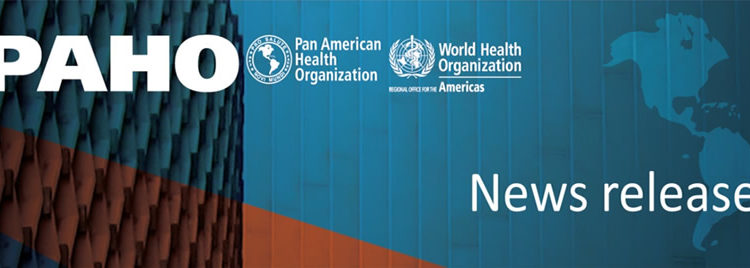The Director of the Pan American Health Organization (PAHO), Jarbas Barbosa, has called for a closer alliance between the health and economy sectors to avoid a “triple crisis” such as the one generated by the COVID-19 pandemic, which stretched economies, safety nets, and health systems to the limit.
“Never before has the case for investing in health and the health economy been made so clearly, and the consequences of under-investment in health made so evident,” the PAHO Director said at the inaugural meeting of the Economic and Health Dialogue of the Americas – an initiative bringing together representatives from health and finance ministries from 17 countries to discuss a coordinated approach to recovery in the region.
“Health systems were underfunded and poorly prepared for what was to come,” the PAHO Director said looking back at the regional context before the COVID-19 pandemic. This led the region to suffer more COVID-19 cases and deaths than any other and left 34 million people in Latin America and the Caribbean unemployed alone during the pandemic’s first year.
Yet, he added, the COVID-19 pandemic also “demonstrated what can be accomplished when health and economic sectors work together.”
He said the region experienced the largest surge in health service delivery, with PAHO mounting the biggest response in its 120-year history to support Member States.
“PAHO distributed more than 270 tons of PPEs to 35 countries and territories and supported the delivery of over 1.35 billion doses of COVID-19 vaccines to countries in Latin America and the Caribbean,” Dr. Barbosa said.
The region also “took transformative leaps to expand its scientific and technological capacity,” quickly deploying digital tools to ensure patients could continue to receive care and stepping up work to develop and produce vaccines and other critical health technologies.
“We will need to sustain these efforts,” he said.
The PAHO Director called for increased public spending on health beyond the current levels of 4.4% of GDP to build more resilient health systems, with primary health care as the foundation to address health needs of peoples and communities where they live.
He also called for greater coordination on cross-cutting issues that impact both health and economic sectors, such as strengthening regulatory capacity and supply chains for medical products.
“Investing in health is a political choice, and it is also the right choice,” Dr. Barbosa concluded in his remarks. “Protecting the region’s health is fundamental to advance economic and social development and to attain peace and security.”
The Economy and Health Dialogue of the Americas (EHA) is a mechanism to enable a coordinated and strategic recovery from the COVID-19 pandemic in the region, working in streams to improve health financing and strengthen health resource analysis, health sector transformation, income protection during pandemics and medical supply chains.
Along with the PAHO Director, participants at the first EHA meeting in the Panamanian capital included United States Under Secretary of State for Economic Growth, Energy and the Environment, Jose W. Fernandez; Panama Minister of Foreign Affairs Janaina Tewaney; the Organization of American States (OAS) Secretary General Luis Almagro; and the Interamerican Development Bank (IDB) Manager for the Social Sector, Ferdinando Regalia.









